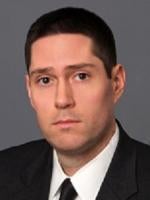In a non-precedential opinion issued earlier this week, the Second Circuit held in Leyse v. Lifetime Entertainment Services, LLC, that a class could not be certified in a Telephone Consumer Protection Act case because the plaintiff did not have a list of the recipients of telemarketing phone calls. The Second Circuit followed its own precedent identifying ascertainability as an “implied requirement” under Rule 23. In so ruling, the Second Circuit has further demonstrated the different approaches to ascertainability that federal circuit court apply.
As set forth in the order denying class certification entered by the Southern District of New York, the plaintiff alleged that a prerecorded call was placed to a phone number he regularly used, resulting in a voicemail message, on behalf of the defendant advising that the television program “Project Runway” would be airing on the Lifetime Channel. In support of his motion for class certification, the plaintiff pointed to evidence that the defendant had contracted with a third party to place prerecorded calls to telephone subscribers in zip codes identified by the defendant. The third party then purchased a list of phone numbers and placed calls regarding the television program. Notably, the vendor who placed the calls at issue was no longer in business at the time the court took up class certification, and no copy of the list used to place the calls could be located.
In light of the absence of a list of call recipients, the plaintiff had proposed to notify class members by publication, and allow call recipients to self-identify by submitting an affidavit. The trial court rejected this approach. On appeal, the Second Circuit held that the plaintiff had failed to demonstrate that this approach “employed objective criteria, was administratively feasible, or permitted ready identification of members.” The Second Circuit further held that “[a]lthough a list of class members will not always be necessary to render a class ascertainable,” the denial of class certification in these circumstances was not an abuse of discretion because the plaintiff had not proposed a method of identifying class members that would avoid individual determinations with respect to each class member.
While the Second Circuit ruled in the defendant’s favor on class certification, the court found that the plaintiff had alleged an injury sufficient to confer Article III standing under Spokeo v. Robins. The Second Circuit held that the contact that the plaintiff had alleged “demonstrates more than a bare violation and satisfies the concrete-injury requirement for standing.” Finally, the Second Circuit held that the district court properly entered judgment for the plaintiff based on the defendant’s offer of judgment, combined with the defendant’s deposit of the full judgment amount with the district court, despite the plaintiff’s refusal to accept the offer. The Second Circuit distinguished the Supreme Court’s decision in Campell-Ewald Co. v. Gomez because in this case, the district court entered judgment only upon deposit of the full judgment amount by the defendant, and only after the court had denied class certification.





 />i
/>i

